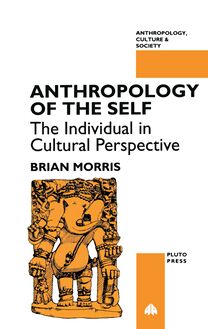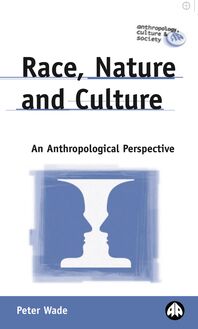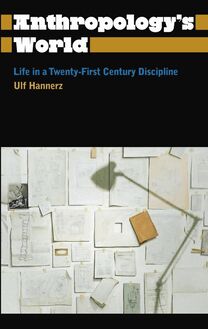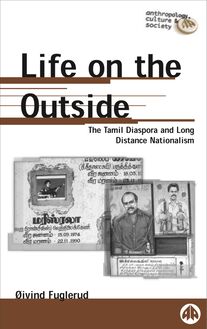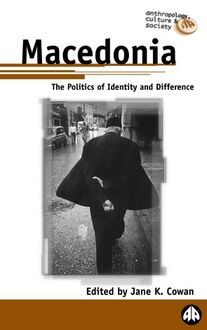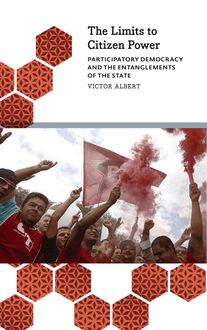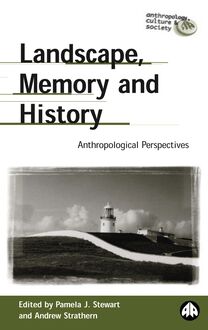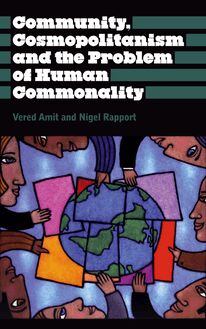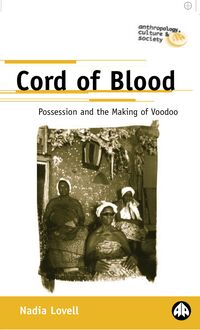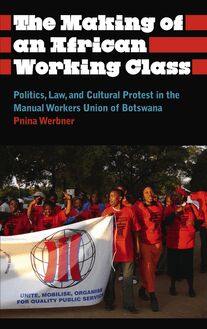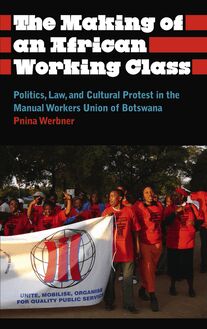-
 Univers
Univers
-
 Ebooks
Ebooks
-
 Livres audio
Livres audio
-
 Presse
Presse
-
 Podcasts
Podcasts
-
 BD
BD
-
 Documents
Documents
-
- Cours
- Révisions
- Ressources pédagogiques
- Sciences de l’éducation
- Manuels scolaires
- Langues
- Travaux de classe
- Annales de BEP
- Etudes supérieures
- Maternelle et primaire
- Fiches de lecture
- Orientation scolaire
- Méthodologie
- Corrigés de devoir
- Annales d’examens et concours
- Annales du bac
- Annales du brevet
- Rapports de stage
La lecture à portée de main
Vous pourrez modifier la taille du texte de cet ouvrage
Découvre YouScribe en t'inscrivant gratuitement
Je m'inscrisCheckpoint, Temple, Church and Mosque , livre ebook
Découvre YouScribe en t'inscrivant gratuitement
Je m'inscrisEn savoir plus
Vous pourrez modifier la taille du texte de cet ouvrage
En savoir plus

Description
Based on fieldwork conducted in Sri Lanka's most religiously diverse and politically troubled region during the country's civil war (1983-2009), it provides a series of new and provocative arguments about the promise of a religiously based civil society, and the strengths and weaknesses of religious organisations and religious leaders in conflict mediation.
The authors argue that for people trapped in long and violent conflicts, religion ultimately plays a contradictory role, and that its institutions are themselves profoundly affected by war - producing a complex picture in which Catholic priests engage with Buddhist monks and new Muslim leaders, and where Hindu temples and Pentecostal churches offer the promise of healing.
List of Illustrations
Series Preface
Acknowledgements
Glossary and Acronyms
1. Introduction
2. The East as a Complex Religious Field
3. Land and Water, War and not War
4. Making Sacred Space
5. Conflict in the Plural
6. Boundary Politics, Religion and Peace-Building
7. Afterword: War’s End
8. Reflections
Notes
Bibliography
Index
Sujets
Informations
| Publié par | Pluto Press |
| Date de parution | 20 décembre 2014 |
| Nombre de lectures | 0 |
| EAN13 | 9781783712151 |
| Langue | English |
| Poids de l'ouvrage | 1 Mo |
Informations légales : prix de location à la page 0,1850€. Cette information est donnée uniquement à titre indicatif conformément à la législation en vigueur.
Extrait
Checkpoint, Temple, Church and Mosque
Anthropology, Culture and Society
Series Editors:
Professor Vered Amit, Concordia University
and
Professor Christina Garsten, Stockholm University
Recent titles:
Claiming Individuality: The Cultural Politics of Distinction
E DITED BY V ERED A MIT AND N OEL D YCK
Community, Cosmopolitanism and the Problem of Human Commonality
V ERED A MIT AND N IGEL R APPORT
Home Spaces, Street Styles: Contesting Power and Identity in a South African City
L ESLIE J. B ANK
In Foreign Fields: The Politics and Experiences of Transnational Sport Migration
T HOMAS F. C ARTER
Dream Zones: Anticipating Capitalism and Development in India
J AMIE C ROSS
A World of Insecurity: Anthropological Perspectives on Human Security
E DITED BY T HOMAS E RIKSEN , E LLEN B AL AND O SCAR S ALEMINK
A History of Anthropology Second Edition
T HOMAS H YLLAND E RIKSEN AND F INN S IVERT N IELSEN
Ethnicity and Nationalism: Anthropological Perspectives Third Edition
T HOMAS H YLLAND E RIKSEN
Small Places, Large Issues: An Introduction to Social and Cultural Anthropology Third Edition
T HOMAS H YLLAND E RIKSEN
What Is Anthropology?
T HOMAS H YLLAND E RIKSEN
Discordant Development: Global Capitalism and the Struggle for Connection in Bangladesh
K ATY G ARDNER
Anthropology and Development: Challenges for the Twenty-first Century
K ATY G ARDNER AND D AVID L EWIS
Organisational Anthropology: Doing Ethnography in and Among Complex Organisations
E DITED BY C HRISTINA G ARSTEN AND A NETTE N YQVIST
Border Watch: Cultures of Immigration, Detention and Control
A LEXANDRA H ALL
Corruption: Anthropological Perspectives
E DITED BY D IETER H ALLER AND C RIS S HORE
Anthropology’s World: Life in a Twenty-First Century Discipline
U LF H ANNERZ
Humans and Other Animals Cross-cultural Perspectives on Human–Animal Interactions
S AMANTHA H URN
Flip-Flop: A Journey Through Globalisation’s Backroads
C AROLINE K NOWLES
Cultures of Fear: A Critical Reader
E DITED BY U LI L INKE AND D ANIELLE T AANA S MITH
The Will of the Many: How the Alterglobalisation Movement is Changing the Face of Democracy
M ARIANNE M AECKELBERGH
The Anthropology of Security: Perspectives from the Frontline of Policing, Counter-Terrorism and Border Control
E DITED BY M ARK M AGUIRE , C ATARINA F ROIS AND N ILS Z URAWSKI
Cultivating Development: An Ethnography of Aid Policy and Practice
D AVID M OSSE
The Gloss of Harmony: The Politics of Policy Making in Multilateral Organisations
E DITED BY B IRGIT M ÜLLER
Contesting Publics: Feminism, Activism, Ethnography
L YNNE P HILLIPS AND S ALLY C OLE
Food For Change: The Politics and Values of Social Movements
J EFF P RATT AND P ETER L UETCHFORD
Race and Ethnicity in Latin America Second Edition
P ETER W ADE
Race and Sex in Latin America
P ETER W ADE
The Capability of Places: Methods for Modelling Community Response to Intrusion and Change
S ANDRA W ALLMAN
Anthropology at the Dawn of the Cold War: The Influence of Foundations, McCarthyism and the CIA
E DITED BY D USTIN M. W AX
The Making of an African Working Class: Politics, Law, and Cultural Protest in the Manual Workers’ Union of Botswana
P NINA W ERBNER
Checkpoint, Temple, Church and Mosque
A Collaborative Ethnography of War and Peace
Jonathan Spencer, Jonathan Goodhand, Shahul Hasbullah, Bart Klem, Benedikt Korf and Kalinga Tudor Silva
First published 2015 by Pluto Press
345 Archway Road, London N6 5AA
www.plutobooks.com
Copyright © Jonathan Spencer, Jonathan Goodhand, Shahul Hasbullah, Bart Klem, Benedikt Korf and Kalinga Tudor Silva 2015
The right of Jonathan Spencer, Jonathan Goodhand, Shahul Hasbullah, Bart Klem, Benedikt Korf and Kalinga Tudor Silva to be identified as the authors of this work has been asserted by them in accordance with the Copyright, Designs and Patents Act 1988.
British Library Cataloguing in Publication Data
A catalogue record for this book is available from the British Library
ISBN
978 0 7453 3122 5
Hardback
ISBN
978 0 7453 3121 8
Paperback
ISBN
978 1 7837 1214 4
PDF eBook
ISBN
978 1 7837 1216 8
Kindle eBook
ISBN
978 1 7837 1215 1
EPUB eBook
Library of Congress Cataloging in Publication Data applied for
This book is printed on paper suitable for recycling and made from fully managed and sustained forest sources. Logging, pulping and manufacturing processes are expected to conform to the environmental standards of the country of origin.
10 9 8 7 6 5 4 3 2 1
Typeset by Stanford DTP Services, Northampton, England
Text design by Melanie Patrick
Simultaneously printed digitally by CPI Antony Rowe, Chippenham, UK and Edwards Bros in the United States of America
Contents
List of Illustrations
Series Preface
Acknowledgements
Glossary and Acronyms
1.
Introduction
2.
The East as a Complex Religious Field
3.
Land and Water, War and Not War
4.
Making Sacred Space
5.
Conflict in the Plural
6.
Boundary Politics, Religion and Peace-Building
7.
Afterword: War’s End
8.
Reflections
Notes
Bibliography
Index
List of Illustrations
Figures
1.1
Priests boarding a transport ship, Kankesanthurai, 1992
2.1
Kovil , Kokkadichcholai, 2010
3.1
Paddy fields near Akkaraipattu, 2008
4.1
Norachcholai housing scheme, 2008
5.1
Kattankudy Mosque Federation, 2008
6.1
Calvary church, Veeramanagar, 2010
Maps
Composed by Shahul Hasbullah, Bart Klem and Marc Vis, using field observation and open sources (Google Earth, Open Street Map)
1.1
Eastern Province (Ampara and Batticaloa districts), Sri Lanka
4.1
Dighavapi
5.1
Kattankudy
5.2
Akkaraipattu
Tables
3.1
Batticaloa and Ampara population by ethnicity, 1946–2007
Series Preface
Anthropology is a discipline based upon in-depth ethnographic works that deal with wider theoretical issues in the context of particular, local conditions – to paraphrase an important volume from the series: large issues explored in small places . This series has a particular mission: to publish work that moves away from an old-style descriptive ethnography that is strongly area-studies oriented, and offer genuine theoretical arguments that are of interest to a much wider readership, but which are nevertheless located and grounded in solid ethnographic research. If anthropology is to argue itself a place in the contemporary intellectual world, then it must surely be through such research.
We start from the question: ‘What can this ethnographic material tell us about the bigger theoretical issues that concern the social sciences?’ rather than ‘What can these theoretical ideas tell us about the ethnographic context?’ Put this way round, such work becomes about large issues, set in a (relatively) small place, rather than detailed description of a small place for its own sake. As Clifford Geertz once said, ‘Anthropologists don’t study villages; they study in villages.’
By place, we mean not only geographical locale, but also other types of ‘place’ – within political, economic, religious or other social systems. We therefore publish work based on ethnography within political and religious movements, occupational or class groups, among youth, development agencies, and nationalist movements; but also work that is more thematically based – on kinship, landscape, the state, violence, corruption, the self. The series publishes four kinds of volume: ethnographic monographs; comparative texts; edited collections; and shorter, polemical essays.
We publish work from all traditions of anthropology, and all parts of the world, which combines theoretical debate with empirical evidence to demonstrate anthropology’s unique position in contemporary scholarship and the contemporary world.
Professor Vered Amit
Professor Christina Garsten
Acknowledgements
The research for this book was funded by the Economic and Social Research Council (award RES-155-25-0096), as part of its Non-Governmental Public Action (NGPA) programme. Subsequent work on analysing the field material and writing has been greatly facilitated by an International Partnership award funded by the Economic and Social Research Council (ESRC) and the British Academy (award IP090196) as well as by two grants of the Swiss National Science Foundation (awards PDFMP1 123181 and 100017_140728). Preliminary work was supported by a series of small collaborative awards from the British Council in Colombo. We are especially grateful to Jude Howell, Director of the NGPA programme, who has been an enthusiastic supporter of our work throughout. Our own universities – Edinburgh, Peradeniya, Zurich and the School of Oriental and African Studies – have provided us with the time and facilities we needed, not just for the fieldwork but for the countless meetings that are one of the pleasures of collaboration of this sort.
In Sri Lanka, we accrued many debts. At Peradeniya University: Mr W.M.K.B. Wickramasinghe, Mr Kamalaratna Thusara, Revd Pahamune Sri Sumangala, P. Malini, Mufizal Aboobucker, John Nigel, S. Satheesmohan, A.G. Fathima Shifani, N. Pushparajah. At Eastern University: Kanesh Suresh, who played a key role in supporting and helping conduct the field research; the late S. Ravindranath, Jeyapraba Suresh, Sivakolunthu Ponniah, M.B. Fowzul, A.L.M. Mujahid, Sinnah Maunaguru, Sitralega Maunaguru, Dominic Saminathan. At Southeastern University: the late Faleel Haq, S. Gunapalan, A.N. Ahmed. In Ampara: Revd Kirindiwela Somaratna, Poddiwela Chandraratna, Revd Girambe Mangala, Mr Sunil Kannangara, Mr A.A. Bawa; in Akkaraipattu: Devadasan, Eardley Bathasar, I. Riswan and A.M. Jaufar; in Kattankudy A.R. Jesmil; in Batticaloa, Ananda Galappatti and Sarola Emmanuel, Amara and Sorna, were especially hospitable, as were the staff at the Riviera guesthouse. Academic colleagues with their own long engagement in eastern Sri Lanka were
-
 Univers
Univers
-
 Ebooks
Ebooks
-
 Livres audio
Livres audio
-
 Presse
Presse
-
 Podcasts
Podcasts
-
 BD
BD
-
 Documents
Documents
-
Jeunesse
-
Littérature
-
Ressources professionnelles
-
Santé et bien-être
-
Savoirs
-
Education
-
Loisirs et hobbies
-
Art, musique et cinéma
-
Actualité et débat de société
-
Jeunesse
-
Littérature
-
Ressources professionnelles
-
Santé et bien-être
-
Savoirs
-
Education
-
Loisirs et hobbies
-
Art, musique et cinéma
-
Actualité et débat de société
-
Actualités
-
Lifestyle
-
Presse jeunesse
-
Presse professionnelle
-
Pratique
-
Presse sportive
-
Presse internationale
-
Culture & Médias
-
Action et Aventures
-
Science-fiction et Fantasy
-
Société
-
Jeunesse
-
Littérature
-
Ressources professionnelles
-
Santé et bien-être
-
Savoirs
-
Education
-
Loisirs et hobbies
-
Art, musique et cinéma
-
Actualité et débat de société
- Cours
- Révisions
- Ressources pédagogiques
- Sciences de l’éducation
- Manuels scolaires
- Langues
- Travaux de classe
- Annales de BEP
- Etudes supérieures
- Maternelle et primaire
- Fiches de lecture
- Orientation scolaire
- Méthodologie
- Corrigés de devoir
- Annales d’examens et concours
- Annales du bac
- Annales du brevet
- Rapports de stage
